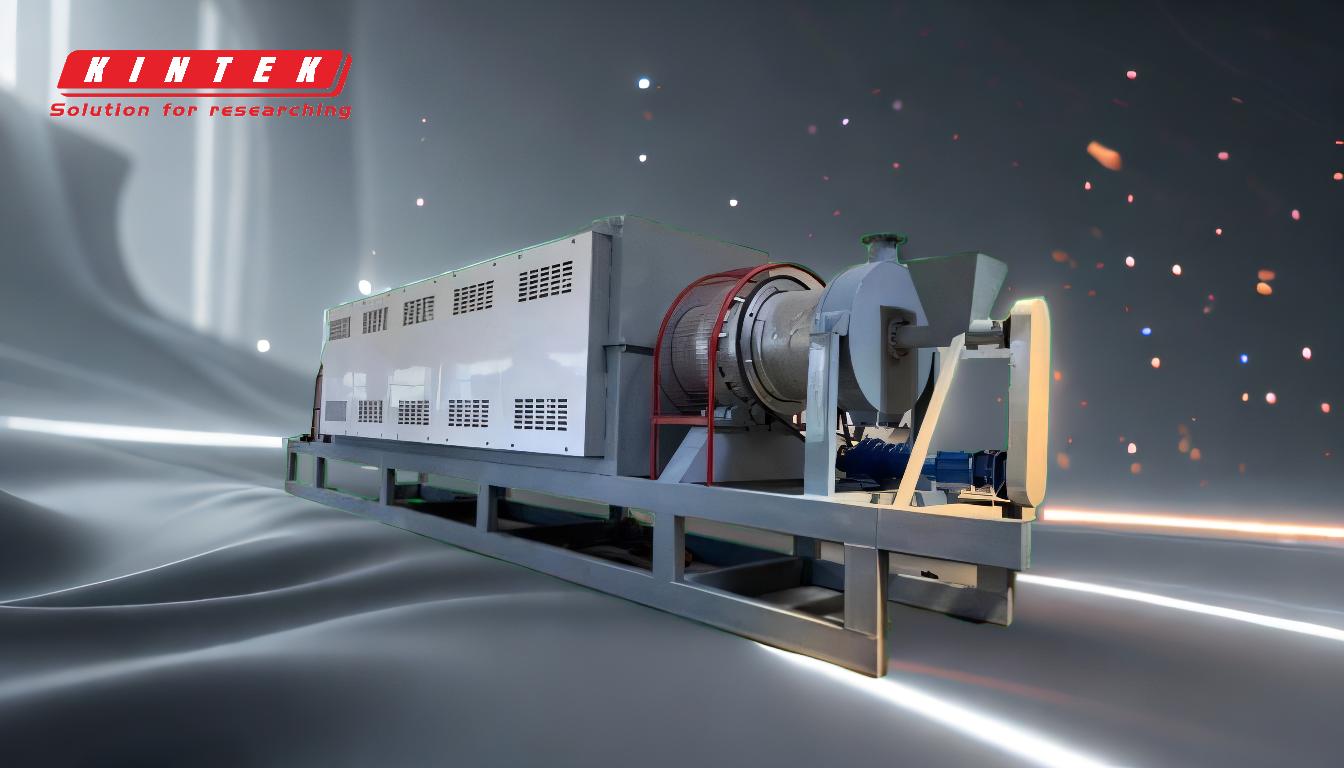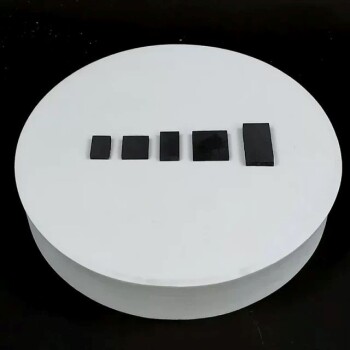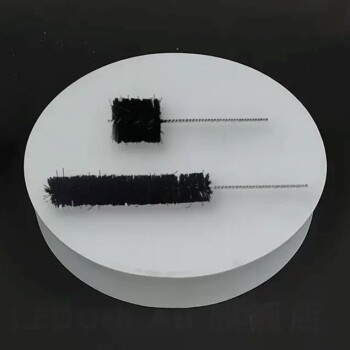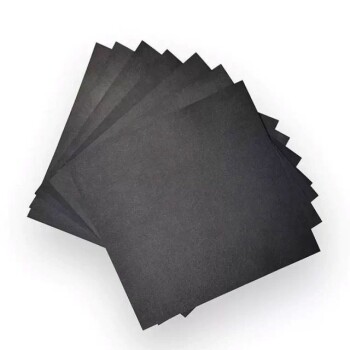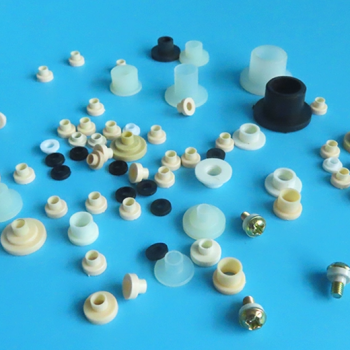At its most basic level, the carbon black derived from tyre pyrolysis is used as a low-grade solid fuel or as a filler material in construction, such as in bricks or asphalt. This raw output, more accurately called pyrolysis char, is a mixture of carbon, ash, and residual chemicals from the original tyre. Its true potential as a valuable industrial material is only realized after significant purification and processing.
The core challenge lies in understanding the difference between the low-quality raw char that comes directly from a pyrolysis reactor and the high-value recovered Carbon Black (rCB) that can be produced from it. Without significant investment in upgrading, its applications remain limited and low-value.
Differentiating Raw Char from High-Value Carbon Black
To grasp the potential uses, you must first understand the material itself. The output from a pyrolysis unit is not a direct replacement for the highly engineered carbon black used in manufacturing.
What is Pyrolysis Char?
Pyrolysis char is the solid residue left after tyres are heated in an oxygen-free environment. It contains a high percentage of carbon but is also contaminated with inorganic materials from the tyre, such as zinc oxide, silica, and steel residues.
The Problem of Contamination
This mixture of carbon and ash is the primary obstacle to its widespread use. The presence of these contaminants, along with sulfur, degrades the performance properties required for high-value applications like new tyres or technical rubber goods.
Inconsistent Quality
The quality and composition of pyrolysis char can vary significantly from one batch to the next. This inconsistency depends on the mix of car, truck, and off-road tyres used as feedstock, making it unreliable for precision industrial processes.
Primary Uses for Unprocessed Pyrolysis Char
Given its contaminated and inconsistent nature, the applications for raw, unprocessed char are fundamentally low-grade. These routes treat it as a bulk filler or a simple source of calories.
As a Low-Grade Solid Fuel
The most common use for raw char is as a fuel source, often blended with coal or petcoke. It has a high calorific value, but its high ash and sulfur content can present environmental challenges and require specialized combustion and flue-gas treatment systems.
As a Basic Construction Filler
The char can be mixed with clay to produce bricks, as mentioned, or used as a filler in asphalt and low-specification concrete products. In these applications, it serves primarily as a cheap bulking agent rather than a performance-enhancing additive.
The Path to High-Value Recovered Carbon Black (rCB)
Unlocking the true economic and environmental potential of tyre-derived carbon requires transforming the raw char into a refined product known as recovered Carbon Black (rCB). This involves a series of critical upgrading steps.
The Necessity of Upgrading
Upgrading processes aim to remove contaminants, control particle size, and improve the material's consistency. This is essential to meet the strict quality standards of industrial customers.
Key Upgrading Processes
The most important steps include milling to achieve a fine, uniform particle size and pelletizing to densify the material for easy handling and transport. More advanced chemical and physical processes can further reduce ash and sulfur content.
High-Value Applications for Upgraded rCB
Once properly refined, rCB can serve as a partial substitute for virgin Carbon Black (vCB), which is produced from fossil fuels. Key markets include non-critical automotive rubber parts (hoses, belts), plastics, coatings, inks, and even as a percentage of the material in new tyres.
Understanding the Trade-offs and Challenges
While the potential is significant, the path from raw char to high-value rCB is not simple. It requires a clear understanding of the economic and technical hurdles.
High Cost of Purification
Upgrading technology requires significant capital investment and operational expense. The cost of milling, de-ashing, and pelletizing can determine whether the final rCB product is economically competitive with vCB.
Market Acceptance and Specifications
The carbon black market is built on decades of consistent, high-purity products. Producers of rCB must invest heavily in quality control and lab testing to prove their material meets the stringent specifications demanded by customers, especially in the tyre industry.
Environmental Considerations
While tyre pyrolysis is an excellent solution for waste tyres, the process itself must be managed carefully. Burning raw char as fuel can release pollutants if not done in controlled industrial furnaces, and the upgrading process consumes considerable energy.
Making the Right Choice for Your Goal
The optimal use for carbon black from tyre pyrolysis depends entirely on your technical capabilities and business objectives.
- If your primary focus is low-cost waste disposal: Using the raw char as a simple solid fuel or construction filler is the most straightforward path, but it yields the lowest financial returns.
- If your primary focus is creating a valuable, sustainable product: You must invest in upgrading and purification technologies to produce a consistent rCB that can compete with virgin carbon black in the rubber and plastics markets.
- If your primary focus is maximizing environmental impact: The goal should be to produce high-quality rCB that can displace the production of energy-intensive virgin carbon black, creating a truly circular economic model.
Ultimately, the value of this material is directly proportional to the level of refinement it undergoes.
Summary Table:
| Material Type | Key Characteristics | Primary Applications |
|---|---|---|
| Raw Pyrolysis Char | High carbon content, contaminated with ash/sulfur, inconsistent quality | Low-grade solid fuel, construction filler (bricks, asphalt) |
| Upgraded Recovered Carbon Black (rCB) | Purified, consistent particle size, low contaminants | Rubber products, plastics, coatings, inks, partial tyre replacement |
Ready to transform your tyre pyrolysis char into a high-value product? KINTEK specializes in lab equipment and consumables for analyzing and optimizing the quality of recovered Carbon Black (rCB). Whether you're testing contaminants, particle size, or material consistency, our solutions help you meet industry standards and maximize your ROI. Contact our experts today to discuss how we can support your sustainable material goals!
